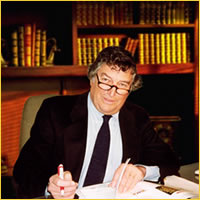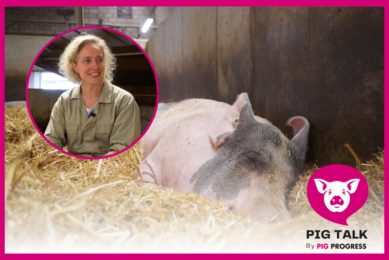Corrêa de Barros new Fefac president

The new president of Feffac is Pedro Corrêa de Barros. On the occasion of the 24th Congress of the European Feed Manufacturers’ Federation in Porto, the Fefac General Assembly elected its new executive committee.
Pedro Corrêa de Barros is CEO of Grupo Nutroton SGPS SA and chairman of the
board of directors of IACA, the Fefac Portuguese member
association.
Corrêa de Barros succeeds to Martin Tielen, who had been the
Fefac
president since 2004.
New executive committee
The following
Members of the Fefac Executive Committee were elected to support him in his
task:
- Giordano Veronesi, Veronesi (Assalzoo, Italy), Vice-President
- Dr Helen Raine, ABNA (AIC, UK)
- Aurelio Sebastia Aguilar, Grupo Leche Pascual
(Cesfac, Spain) - Marek Kumprecht, Biofaktory Praha s.r.o. (CMSO, Czech
Republic) - Dietrich Schwier, Deuka Deutsche Tiernahrung (DVT, Germany)
- Adolphe Thomas, Group Evialis (SNIA, France)
- Patrick Vanden Avenne, Vanden Avenne NV
(Apfaca, Belgium) - Jan Witsenboer, Navobi (Nevedi, The
Netherlands)
Pro-active action plan
In his inaugural speech
addressing the Fefac delegates at the 50th General Assembly in Porto, Corrêa de
Barros presented his programme for a pro-active long-term action plan of the
European Compound feed industry 2007 – 2010.
On Sustainable Agriculture
and the CAP Health Check, he stressed the need to maintain the competitiveness
of EU livestock production.
Corrêa de Barros pointed to the potential
negative impact of a possible new EU WTO offer for more tariff concessions for
meat imports and the EU policy on renewable energies, which is driving up the
cost for feed materials.
He stressed Fefac’s commitment to favour global
sustainability criteria for the production of key feed materials (e.g. soybean
meal).
Feed manufacturer’s guide
On food and feed safety, he
underlined Fefac’s commitment to further improve the officially recognised
European Feed Manufacturers’ Guide, the EFMC.
Fefac will continue
partnership discussions with the whole supply chain to create a comprehensive,
harmonised feed safety-assurance system for feed materials.
Disruption
in trading patterns
On biotechnology, he called on EU and global GM
approval bodies to address the issue of “asynchronous approvals”, which can
severely disrupt traditional trading patterns for feed materials, in particular
for vegetable proteins, of which the EU needs to import more than 70% or 35
million tonnes per year.
Corrêa
de Barros committed himself to pursue an open dialogue with all stakeholders of
the food & feed chain to address any emerging issue while providing
solutions to customer needs regarding compound feed for food producing animals.











